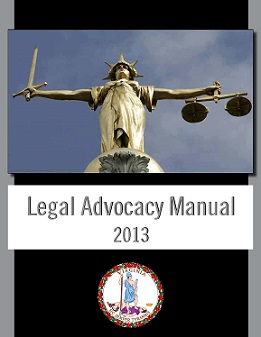Resources Library: Publications/Reports
Start a Search:
Key Findings from ‘Sexual Violence Victimization and Associations with Health in a Community Sample of Hispanic Women’
Sexual violence can result in many health, economic, and social struggles in the lives of survivors. This resource highlights findings from a 2015 study on sexual violence against Latina women. Findings can help strengthen our prevention and response strategies with Latin@ communities.
En Español: Esta traducción resume los principales hallazgos del estudio “La victimización de Violencia Sexual y de las asociaciones de la salud en una muestra de la comunidad de las mujeres hispanas,” realizado por K. C. Basile, S.G. Smith, M.L. Walters, D.N. Fowler, K. Hawk y M.E. Hamburger. Los hallazgos del estudio se basan en nuestra comprensión de los efectos de la violencia sexual en mujeres latinas y pueden orientar nuestras estrategias tanto de prevención de la violencia sexual como de respuesta a ésta.
Key findings from “Sexual Violence Victimization and Associations with Health in a Community Sample of African American Women”
Victims of sexual violence can experience a range of negative health outcomes over the course of their lives. A substantive body of research finds that individuals can experience physical, mental, and behavioral health impacts well beyond the duration of the event(s). Less is known, however, about particular consequences and life contexts of Black/African American women who have been victimized.
Basile, Smith, Fowler, Walters, and Hamburger (2016) offer a window into the lived experiences of African American women in Sexual violence victimization and associations with health in a community sample of African American women. This study is part of a larger effort to better understand the context surrounding the findings that women of color experience sexual violence at a much higher rate than White women (Breiding et al., 2014; Tjaden & Thoennes, 2006). This research translation summarizes the article’s key findings to help support sexual violence prevention and response strategies with Black and African American communities.
Law Enforcement Adult Sexual Assault Initial Response Checklist
This checklist is intended to be used as a tool/resource for law enforcement. It does not supersede any existing general orders, policies, or procedures, and is designed to be used in conjunction with the Virginia Department of Criminal Justice Services (DCJS) model sexual assault policy. The model policy is available on the DCJS website at www.dcjs.virginia.gov.
Law Enforcement Domestic Violence Investigative Checklist: Responding Officer/Deputy Responsibilities
This checklist is intended to be used as a tool/resource for law enforcement. It describes an initial response to a domestic violence call and does not represent a complete approach to these cases. This checklist does not supersede any existing general orders, policies, or procedures, and is designed to be used in conjunction with the Virginia Department of Criminal Justice Services (DCJS) model domestic violence policy. The model policy is available on the DCJS website at www.dcjs.virginia.gov.
Legal Advocacy Manual 2013

The Legal Advocacy Manual provides victim advocates (as well as victims) with a comprehensive guide to help domestic and sexual violence victims in Virginia through some of the legal processes in which they may become involved. It provides both basic and intermediate levels of information about legal advocacy--what it is, the difference between civil and criminal justice systems, definitions of commonly used legal terms, and how to avoid the unauthorized practice of law, among other topics. The manual offers context for the emotional, logistical, and legal hurdles involved in protective orders, criminal prosecutions, visa applications, and divorces. It is 76 pages long and is in PDF form. Susheela Varky of Virginia Poverty Law Center updated it in June 2013 for recent changes in the law. Ms. Varky has used the manual as a resource for in-person trainings geared to victim advocates, and is available to tailor such trainings for your local Virginia domestic or sexual violence program.

